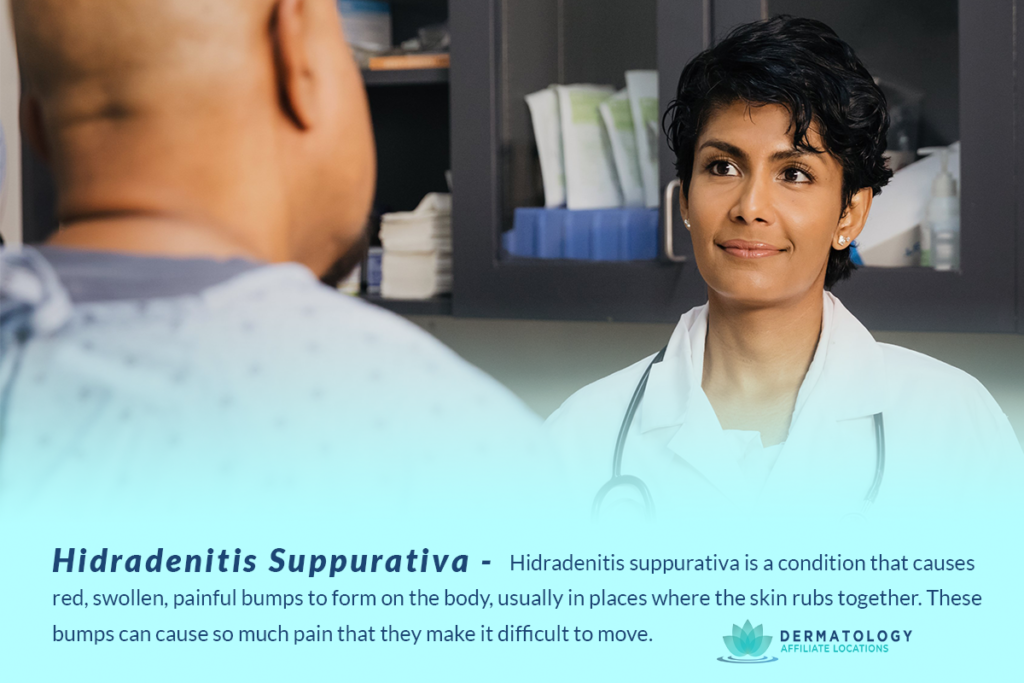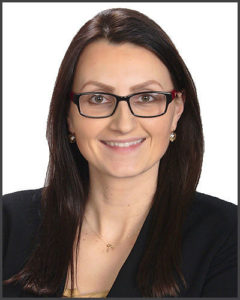Hidradenitis Suppurativa: All About This Difficult Skin Condition
While there are many skin conditions that are relatively harmless, others can be painful and even make it hard to move at times. One of those in particular is Hidradenitis Suppurativa.
What is hidradenitis suppurativa?
Hidradenitis suppurativa is a condition that causes red, swollen, painful bumps to form on the body, usually in places where the skin rubs together. These bumps can cause so much pain that they make it difficult to move.
Sometimes, they can smell bad or drain pus or blood. The bumps also tend to linger for weeks or months and keep recurring.
People who have hidradenitis suppurativa, also called “HS,” often have a hard time dealing with their problem. It can make them feel embarrassed and worried. Sometimes the condition can even cause problems in relationships, or in the workplace.
So treatment by a qualified dermatologist is essential for preventing even more adverse effects.

What are the main symptoms of HS?
The main symptoms are red, swollen, painful bumps that can drain pus or blood. The bumps usually form in places where the skin rubs together.
Common locations of hidradenitis suppurativa include:
- Armpits
- On or under the breasts (in women)
- In the groin area
- Inner thighs
- Buttocks
- Around or near the anus
The skin problems caused by HS last a long time and get worse over time. Often the skin hardens and scars around the painful bumps. Plus, many bumps can form in a single area and sometimes form tunnels under the skin.
How is hidradenitis suppurativa treated?
First and foremost, all treatments should be administered by someone qualified to do so. Self treating can be harmful and even dangerous. That said, there are a number of treatments available for HS.
Treatment can include:
- Antibiotic liquids or gels that you put on the affected areas
- Antibiotic pills, which you might need to take for a long time
- Injections of steroid medicines into affected areas to bring down inflammation
- Hormone pills for women with HS
- A medicine called adalimumab (brand name: Humira)
There are other medicines and treatments that might help people with HS. People with severe, long-lasting problems can have surgery that helps HS to heal.

Is there anything I (the patient) can do on my own to improve the condition?
“Yes. First, you should know that you did not do anything to cause your condition. It is not your fault. You did not cause it by being unclean. You should also know that you cannot spread your condition to anyone else. It is not ‘contagious.’”
Here are some things you can do to reduce your symptoms:
- Stop smoking, if you smoke. People who smoke are more likely to have HS
- Shower every day and wash areas of HS gently with your fingers. Do not scrub affected areas with a washcloth, loofah, or brush.
- Wear loose, light clothing instead of tight-fitting clothes on areas where you have HS
- Lose weight, if you are overweight. HS is more common and more severe in people who are overweight.
Remember to always book an appointment with a dermatologist in order to learn if you do have hidradenitis suppurativa. Many skin conditions can look similar, but have very different treatments; you can cause more harm than good if you try to self-treat.
Come see us and we can help!
About Christina Avilina, PA-C

Christina Avilina completed her Physician Assistant training in August of 2017 with a Master’s Degree in Physician Assistant Studies at Idaho State University in Pocatello, Idaho.
She then joined GoldinSkin Dermatology in October of 2017.
A Physician Assistant is a nationally certified and state-licensed medical professional who practices medicine under the supervision of a physician. Christina evaluates and treats patients, prescribes medications and performs procedures as part of the GoldinSkin Dermatology team.

